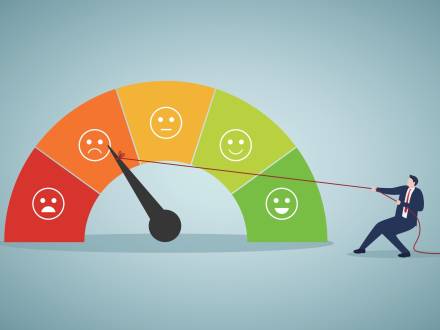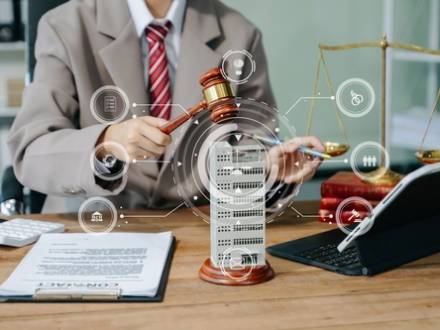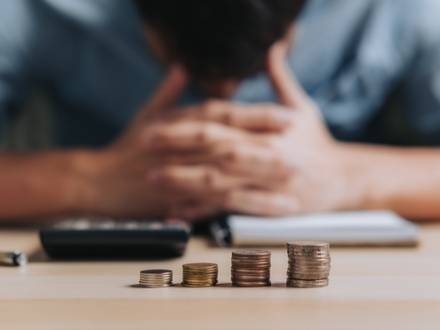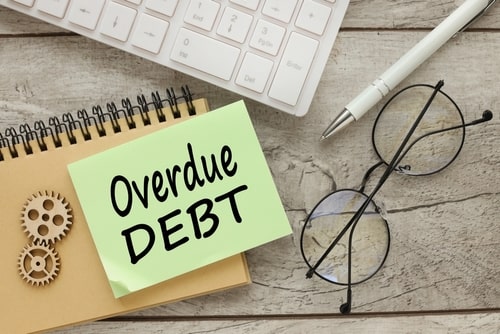Recent Blog Posts
Can A Creditor Refuse to Erase My Debt in Chapter 7?
 People turn to bankruptcy because they find themselves burdened by overwhelming debt and seek the financial fresh start that Chapter 7 bankruptcy can provide. In some cases, however, a creditor can refuse to erase a specific debt or may refuse to discharge all of the debtor’s debt in the bankruptcy proceeding.
People turn to bankruptcy because they find themselves burdened by overwhelming debt and seek the financial fresh start that Chapter 7 bankruptcy can provide. In some cases, however, a creditor can refuse to erase a specific debt or may refuse to discharge all of the debtor’s debt in the bankruptcy proceeding.
To do so, the creditor must go through a legal process in the bankruptcy court; the creditor cannot simply decide not to wipe out a debt. An experienced Mecklenburg, NC Chapter 7 bankruptcy attorney is here to safeguard debtor’s rights in bankruptcy court and protect them from a creditor’s refusal to discharge debt.
When Can a Creditor Object to the Discharge of a Debt?
There are a few common reasons why a creditor might object to the discharge of a specific debt:
Should You Negotiate a Repayment of Your Credit Card Debt?
 Americans have a great deal of credit card debt – over $1.21 trillion in total as of February 2025. We use credit cards for nearly every financial transaction, and credit cards are only becoming more commonplace, not less. Given the often high interest rates on credit cards, it is not surprising then that we have so much credit card debt.
Americans have a great deal of credit card debt – over $1.21 trillion in total as of February 2025. We use credit cards for nearly every financial transaction, and credit cards are only becoming more commonplace, not less. Given the often high interest rates on credit cards, it is not surprising then that we have so much credit card debt.
However, it is not necessary to live with overwhelming credit card debt. There are options to manage or even get rid of credit card debt. Besides bankruptcy, it is possible in some cases to negotiate a debt repayment, also called a debt settlement. An experienced Charlotte, NC credit card debt attorney advises clients on whether negotiating a debt settlement is right for them.
How Do You Negotiate a Credit Card Debt Settlement?
If you have struggled to pay your credit card debt on time and have amassed more credit card debt than you can manage, you may try to negotiate a debt settlement with your credit card company. When you negotiate a debt settlement, you agree to pay a smaller amount than you owe in a one-time payment in exchange for the credit card company erasing the rest of your debt.
Using Deductions to Pass the Chapter 7 Means Test
 If you have decided to file for Chapter 7 bankruptcy, or even if you are just considering filing for bankruptcy, you may be wondering whether there are eligibility requirements, and if so, what they are. To file for Chapter 7 bankruptcy, you must pass the "means test." which calculates your monthly income.
If you have decided to file for Chapter 7 bankruptcy, or even if you are just considering filing for bankruptcy, you may be wondering whether there are eligibility requirements, and if so, what they are. To file for Chapter 7 bankruptcy, you must pass the "means test." which calculates your monthly income.
The results of the means test must show that your gross income is below bankruptcy income limits. However, even if you do not at first pass the means test and your income is higher than the allowed income, you can still qualify for Chapter 7 by deducting the cost of certain allowed expenses. An experienced North Carolina Chapter 7 bankruptcy attorney can help you find out if you qualify for Chapter 7 bankruptcy.
How Do You Pass the Chapter 7 Means Test?
Unless you are exempt from the means test (for example, if you owe more business debt than personal debt or qualify based on your military status), you must pass the means test. To do so, you will calculate your average monthly income for the last six months as instructed on the bankruptcy means test form. If the number is below the median income for your household size in North Carolina, you have passed the Chapter 7 means test and qualify to wipe out your debt via Chapter 7 bankruptcy.
Common Fair Credit Reporting Act Violations
 The old saying that "cash is king" may be true. Nevertheless, it is your credit score that arguably has the most significant impact on your financial opportunities. Calculated based on information on your credit report, your credit score can affect everything from your ability to rent an apartment to your power to purchase a home or car.
The old saying that "cash is king" may be true. Nevertheless, it is your credit score that arguably has the most significant impact on your financial opportunities. Calculated based on information on your credit report, your credit score can affect everything from your ability to rent an apartment to your power to purchase a home or car.
That is why any mistake on a credit report can have serious repercussions on your life. The role of the Fair Credit Reporting Act (FCRA) is to protect you from any false or mistaken information on your credit report. If there are issues with your credit report, an experienced North Carolina bankruptcy attorney can advise you on the ways the FCRA can protect you.
What Is the FCRA?
The FCRA is a federal law that protects the information collected by the credit reporting agencies (also called credit bureaus) that compile your credit history. It governs how the credit bureaus may collect and access your information. Its goal is to ensure the accuracy, fairness, and privacy of the personal information the credit bureaus collect.
What Happens to Your Personal Assets in a Small Business Bankruptcy?
 If your small business is struggling, you may be wondering whether filing bankruptcy is the right option for you. Specifically, you may be concerned about whether filing for bankruptcy as a small business will affect your personal assets. This is a valid question, and the answer generally depends on how your business is structured and whether you personally guaranteed any payments. An experienced Charlotte, NC small business bankruptcy attorney can offer guidance tailored to your specific situation.
If your small business is struggling, you may be wondering whether filing bankruptcy is the right option for you. Specifically, you may be concerned about whether filing for bankruptcy as a small business will affect your personal assets. This is a valid question, and the answer generally depends on how your business is structured and whether you personally guaranteed any payments. An experienced Charlotte, NC small business bankruptcy attorney can offer guidance tailored to your specific situation.
How Does Your Business’s Organizational Structure Impact Your Personal Liability?
Sole Proprietorship
If you have structured your business as a sole proprietorship, your personal assets may be affected. With sole proprietorship, there is no legal distinction between business and personal assets.
What Types of Debt Are Covered by the Fair Debt Practices Act?
 American consumers hold almost $18 trillion in debt, with the average household owing about $104,215. Most of this is mortgage debt, followed by credit card and auto loan debt. These figures suggest that consumers are saddled with serious financial obligations that many of them might not be able to meet. The creditors who own this debt, like banks and credit card companies, use a variety of methods to try to collect payment for their claims.
American consumers hold almost $18 trillion in debt, with the average household owing about $104,215. Most of this is mortgage debt, followed by credit card and auto loan debt. These figures suggest that consumers are saddled with serious financial obligations that many of them might not be able to meet. The creditors who own this debt, like banks and credit card companies, use a variety of methods to try to collect payment for their claims.
The Fair Debt Collection Practices Act (FDCPA) places a limit on these methods, as this article will discuss. For more details and to learn about your rights under the FDCPA, contact a North Carolina Fair Debt Collection Practices Act attorney.
What Is the Fair Debt Collection Practices Act?
Creditors like mortgage lenders and credit card companies often do not have the time or resources to collect debt themselves, so they outsource the job to professional debt collectors. The Fair Debt Collection Practices Act (FDCPA) is part of the federal Consumer Credit Protection Act and offers a level of protection for consumers from debt collection companies. It prohibits them from engaging in certain practices in the process of trying to recover payments. Prohibited activities include:
Which Assets Can I Keep During Bankruptcy?
 The fear of losing all their belongings keeps a lot of families from getting the debt relief they need through Chapter 7 bankruptcy. Although Chapter 7 bankruptcy does involve liquidation, not all of your assets will be taken and sold during this process. Quite a few of the things you own are exempt from liquidation, meaning that you can keep them even if you choose to file Chapter 7 bankruptcy. The goal of filing bankruptcy is to help your family get out from under crushing debt and get back on your feet. That would be very hard to do if you lost, for example, the car you need to get to work. A Charlotte, NC Chapter 7 bankruptcy attorney can tell you more about which assets are exempt from liquidation.
The fear of losing all their belongings keeps a lot of families from getting the debt relief they need through Chapter 7 bankruptcy. Although Chapter 7 bankruptcy does involve liquidation, not all of your assets will be taken and sold during this process. Quite a few of the things you own are exempt from liquidation, meaning that you can keep them even if you choose to file Chapter 7 bankruptcy. The goal of filing bankruptcy is to help your family get out from under crushing debt and get back on your feet. That would be very hard to do if you lost, for example, the car you need to get to work. A Charlotte, NC Chapter 7 bankruptcy attorney can tell you more about which assets are exempt from liquidation.
Exempt Assets in Chapter 7 Bankruptcy
Assets that are exempt from liquidation when you file Chapter 7 bankruptcy include:
Types of Bankruptcy for Small Businesses in North Carolina
 As a small business owner, getting yourself out of a financial mess can be challenging. Understanding your options, particularly when it comes to bankruptcy, is helpful for making informed decisions about your company’s future. A North Carolina lawyer can help you understand the different types of bankruptcy for small businesses and their implications and help you determine the best option for your situation.
As a small business owner, getting yourself out of a financial mess can be challenging. Understanding your options, particularly when it comes to bankruptcy, is helpful for making informed decisions about your company’s future. A North Carolina lawyer can help you understand the different types of bankruptcy for small businesses and their implications and help you determine the best option for your situation.
Chapter 7 Bankruptcy to Seek Liquidation
A Chapter 7 bankruptcy, often called "liquidation bankruptcy," is one option for small businesses in North Carolina. In this process, a trustee is appointed to sell the business’s assets and distribute the proceeds to creditors. Both sole proprietorships and corporations can file for Chapter 7, but corporations will not receive a discharge of debts.
The Chapter 7 process is relatively quick, usually taking three to six months to complete. It eliminates most unsecured debts and allows for a fresh start. However, business operations typically cease, and you will lose your business assets. Filing for Chapter 7 will also significantly damage your credit score.
What to Consider Before You File Bankruptcy for Your Small Business
 As a small business owner in North Carolina, facing financial difficulties can be overwhelming. While bankruptcy might seem like the only option, it is helpful to understand the implications and alternatives before making this significant decision. A North Carolina lawyer can walk you through essential considerations to help you make an informed choice about filing for bankruptcy for your small business.
As a small business owner in North Carolina, facing financial difficulties can be overwhelming. While bankruptcy might seem like the only option, it is helpful to understand the implications and alternatives before making this significant decision. A North Carolina lawyer can walk you through essential considerations to help you make an informed choice about filing for bankruptcy for your small business.
Assess Your Business to Make Sure Bankruptcy is the Best Option
Before contemplating bankruptcy:
- Conduct a thorough assessment of your business’s financial health.
- Review your cash flow, assets, and liabilities.
- Identify potential areas for cost-cutting or revenue increase.
- Most importantly, evaluate the viability of your business model in the current market. This analysis will help determine whether bankruptcy is necessary or if other solutions might suffice.
How the Fair Debt Practices Act Protects You During Bankruptcy
 Dealing with overwhelming debt can be an incredibly stressful experience, especially when you are considering bankruptcy as a solution. However, knowing that you are entitled to rights and protections under the law, specifically the Fair Debt Collection Practices Act (FDCPA) is important. A North Carolina lawyer can help you understand how the FDCPA works to protect you during bankruptcy.
Dealing with overwhelming debt can be an incredibly stressful experience, especially when you are considering bankruptcy as a solution. However, knowing that you are entitled to rights and protections under the law, specifically the Fair Debt Collection Practices Act (FDCPA) is important. A North Carolina lawyer can help you understand how the FDCPA works to protect you during bankruptcy.
What is the Fair Debt Collection Practices Act?
The FDCPA is a federal law that regulates the actions of debt collectors and protects consumers from unfair, deceptive, or abusive practices. This law applies to personal, family, and household debts, including medical bills, credit card debt, and auto loans. While the FDCPA does not erase your debt, it provides a layer of protection during the debt collection process, even when you are going through bankruptcy.
How the FDCPA Protects You:
The FDCA can protect you in various ways. Some ways include the following:


 704-BLOSSOM
704-BLOSSOM

